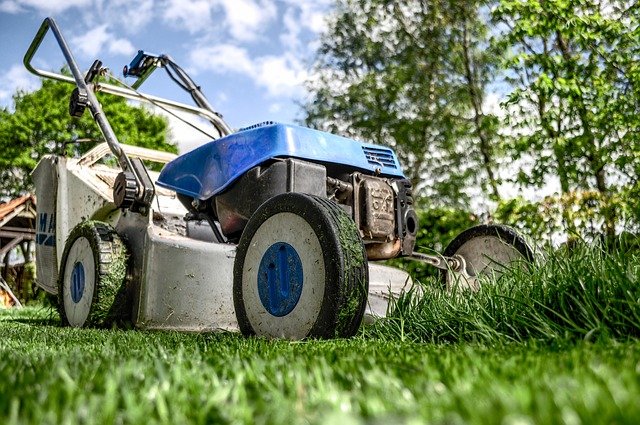Garden Maintenance: Landlord or Tenant Responsibility?
As the weather finally starts to break, and thoughts turn to getting back outside, the question of who is responsible for what in terms of garden maintenance naturally rears its head. It is vital for landlords to know where they stand in this respect. Read on as we reveal who must be doing what in the garden, and where tenants stand on their rights to make changes.
Gardens are a very desirable feature of rental properties, especially so during the pandemic when even a small outdoor space meant the world to tenants. As the weather finally starts to break, and thoughts turn to getting back outside, the question of who is responsible for what in terms of garden maintenance naturally rears its head. It is vital for landlords to know where they stand in this respect.
Read on as we reveal who must be doing what in the garden, and where tenants stand on their rights to make changes.
Identifying who is responsible for garden maintenance within a rented property can be a point of confusion for landlords and tenants. Taking the time to clarify responsibilities at the start of a tenancy will reduce the likelihood of disputes occurring down the line.
Questions such as what can a tenant do to the garden and what should they be doing in terms of garden upkeep, whether the landlord is responsible for maintenance and which aspects of it, and how landlords can protect themselves against damage or neglect by the tenant are all common.
What are a tenant’s responsibilities for garden maintenance?
Tenants are expected to adhere to the terms set out in the tenancy agreement. The minimum that is usually expected of a tenant is that the garden is kept free from litter and debris, is maintained to a reasonable standard of tidiness, and is not allowed to become overgrown.
For example, tenants would be expected to mow any lawns on a regular basis, to keep on top of weeding. At the end of the tenancy, the tenant will generally be responsible only for returning the garden in the same condition it was in when they moved into the property. This means that landlords cannot expect tenants to undertake improvements if the garden was in a poor state at the beginning of the tenancy.
Tenants should not be expected to undertake tasks that require expertise, such as pruning a tree. This would be down to the landlord to make arrangements to deal with.
Social events are generally allowed in gardens of rental properties, unless otherwise stated in the tenancy agreement. If as a landlord you wish to forbid activities such as parties and barbecues, perhaps because you want to keep the neighbours happy, then you will need to include a clause to this effect in the tenancy agreement.
Where a tenant wishes to make changes to the garden, including improvements, they are required by law to obtain the landlord’s approval. This includes the likes of adding permanent planting, landscaping features such as decking or patios, and laying a natural or artificial lawn. Failure to obtain permission could mean that if the landlord wishes to, they can charge the tenant to return the garden to its original state.
What are the landlord’s responsibilities for garden maintenance?
Landlords are responsible for maintaining any areas of the garden that would be unreasonable to expect the tenant to take care of. This generally includes the pruning of trees, hedges and large shrubs, fence maintenance or replacement and repairs to paving or decking, for example.
If a tenant reports a problem that is not their fault, then a landlord has a duty to respond and take action where appropriate. This is especially important where there are issues that may pose a safety hazard.
Landlords with multiple properties tend to hire their own gardeners, or hand over to a property management company to take regular care of the outdoor space, otherwise it can become quite a burdensome task. If a tenant agrees to it, a clause can be included in the tenancy agreement that there is an additional charge for a gardener. But if a gardener is promised in the agreement, then that promise must be kept for the duration of the tenancy.
What should landlords do to protect against garden maintenance disputes?
Landlords should make certain that they take a deposit that is sufficient enough to cover any costs associated with damage or neglect of the garden.
Also, be sure to set out respective responsibilities within the tenancy agreement, so that everyone is clear on who should be doing what. Also include any restrictions as to how the garden can be used.
An inventory and check-in report at the start of the tenancy, complete with date stamped photographs or videos, is vital as evidence of the condition of the garden at handover. This will help should any disputes arise.
Carrying out regular mid-term inspections is advisable so that the garden, as well as the rest of the property, can be kept in check, any developing issues notified so they can be dealt with early on, and any signs of neglect spotted and handled.
Adequate buildings insurance is essential to cover malicious or accidental damage by tenants or their guests.
Hand over your maintenance responsibilities to homes2let, and enjoy guaranteed rent too.
There is so much to deal with as a landlord, not least garden maintenance. So why not hand over to a property management service, but one with a beneficial difference?
The homes2let guaranteed rent scheme secures rental payments, even during void periods, as well as taking all the hassle of property management off your shoulders too. And that includes garden maintenance.
Interested to learn more? You are welcome to get in touch with our expert team to discover how we can make your life as a landlord so much more straightforward.
Related Insights

Repairs and Safety Checks During COVID-19: A Guide for Landlords
In this latest instalment of our coronavirus series for landlords, we’re looking at how to approach the various legally required safety checks during COVID-19, the scenarios in which checks may not be possible, and how to handle situations where tenants are shielding or self-isolating.

Blind Safety in Rental Property: What Landlords Need to Know
According to the Royal Society for the Prevention of Accidents (RoSPA), at least 35 young children across the UK have died because of looped cords on blinds since 2001. Whilst new blinds are manufactured to improved safety standards, it is reckoned that there are millions of older blinds in homes across the country. For this reason, it is crucial that landlords take steps to ensure blind safety, particularly when renting to families with children.

A Landlord’s Guide to the Housing Health and Safety Rating System
The Housing Health and Safety Rating System (HHSRS) places obligations upon residential landlords and property managers to maintain their properties within a strict set of guidelines. The requirements are in place to ensure premises are safe and secure for residents and visitors.







